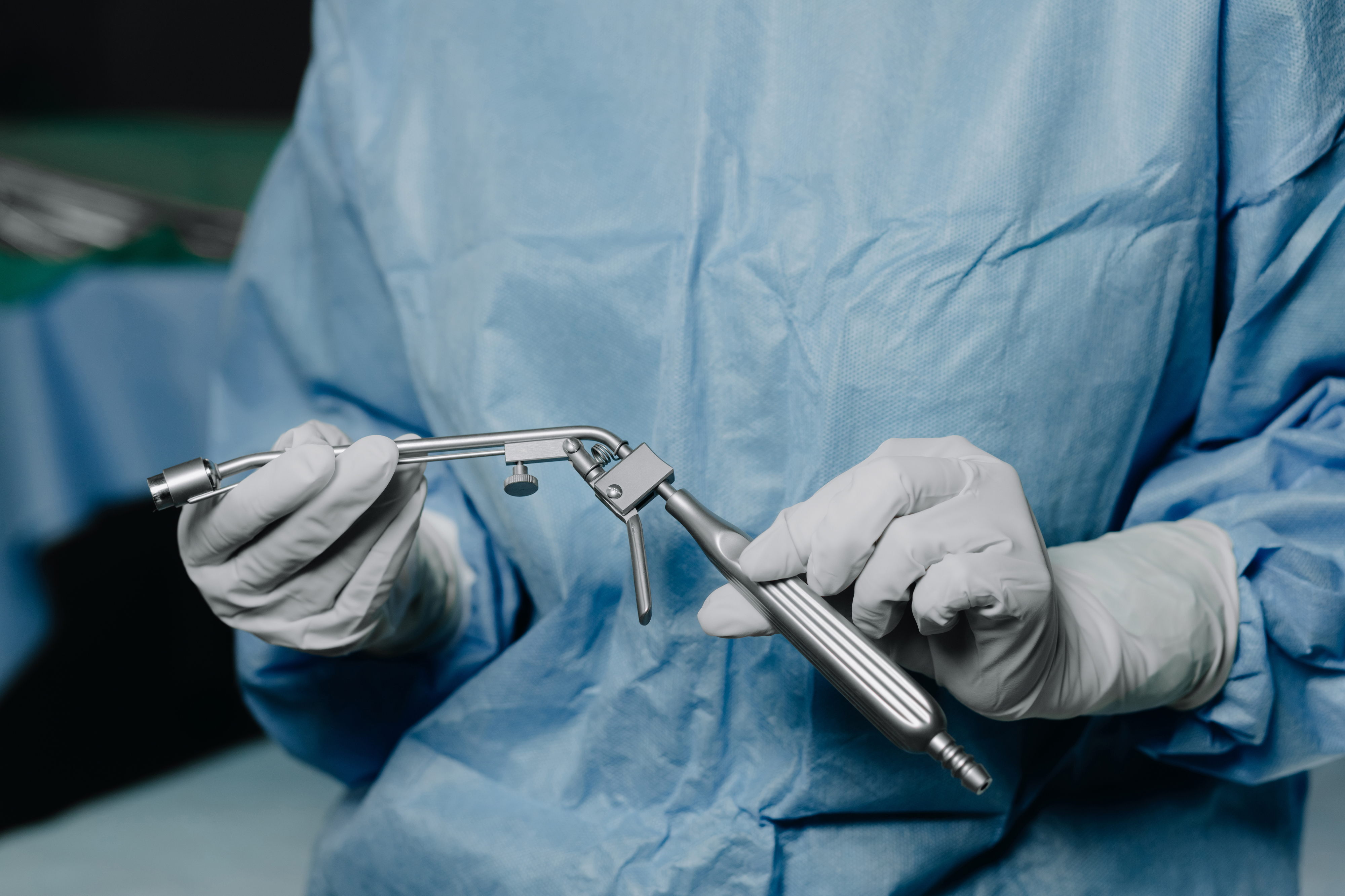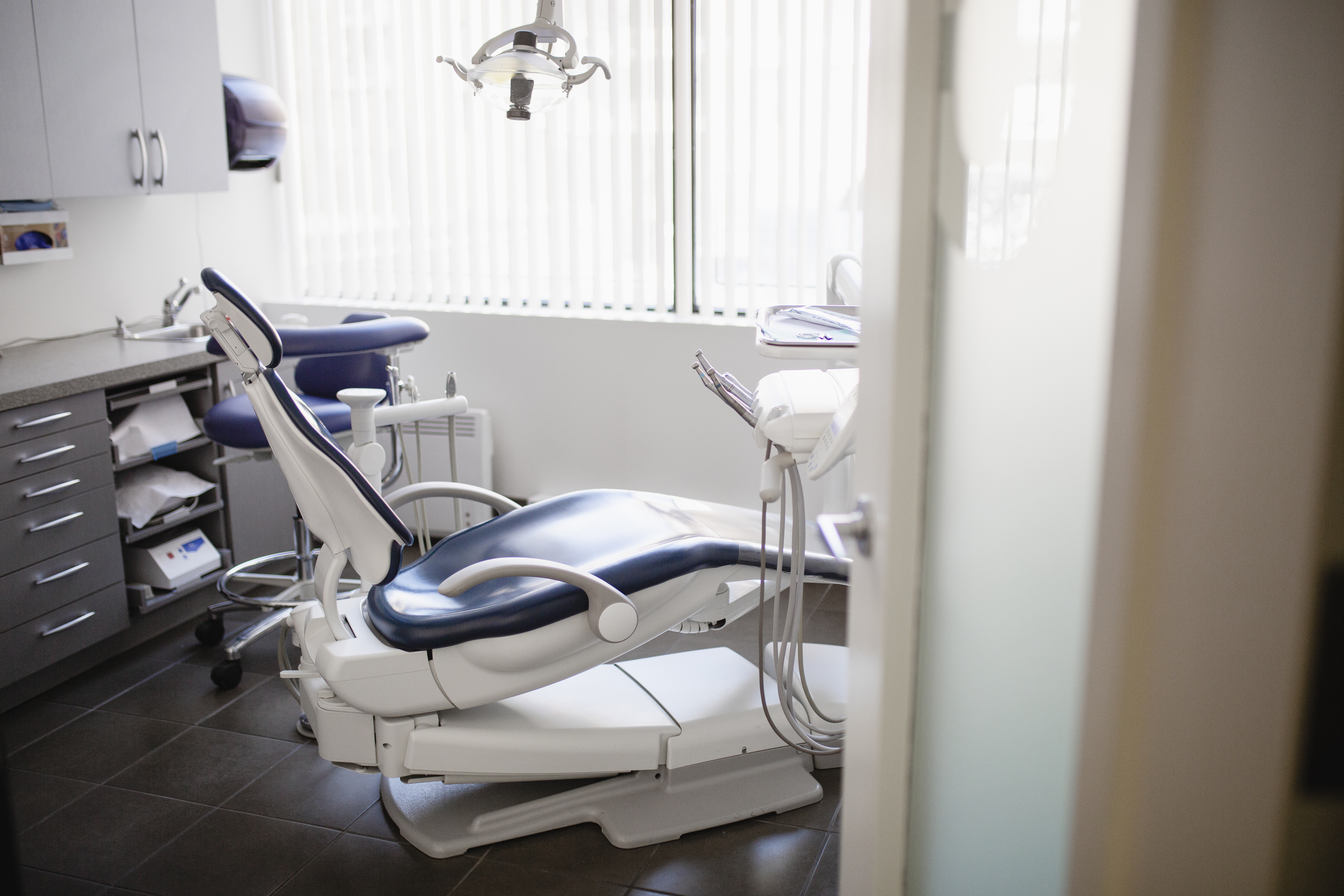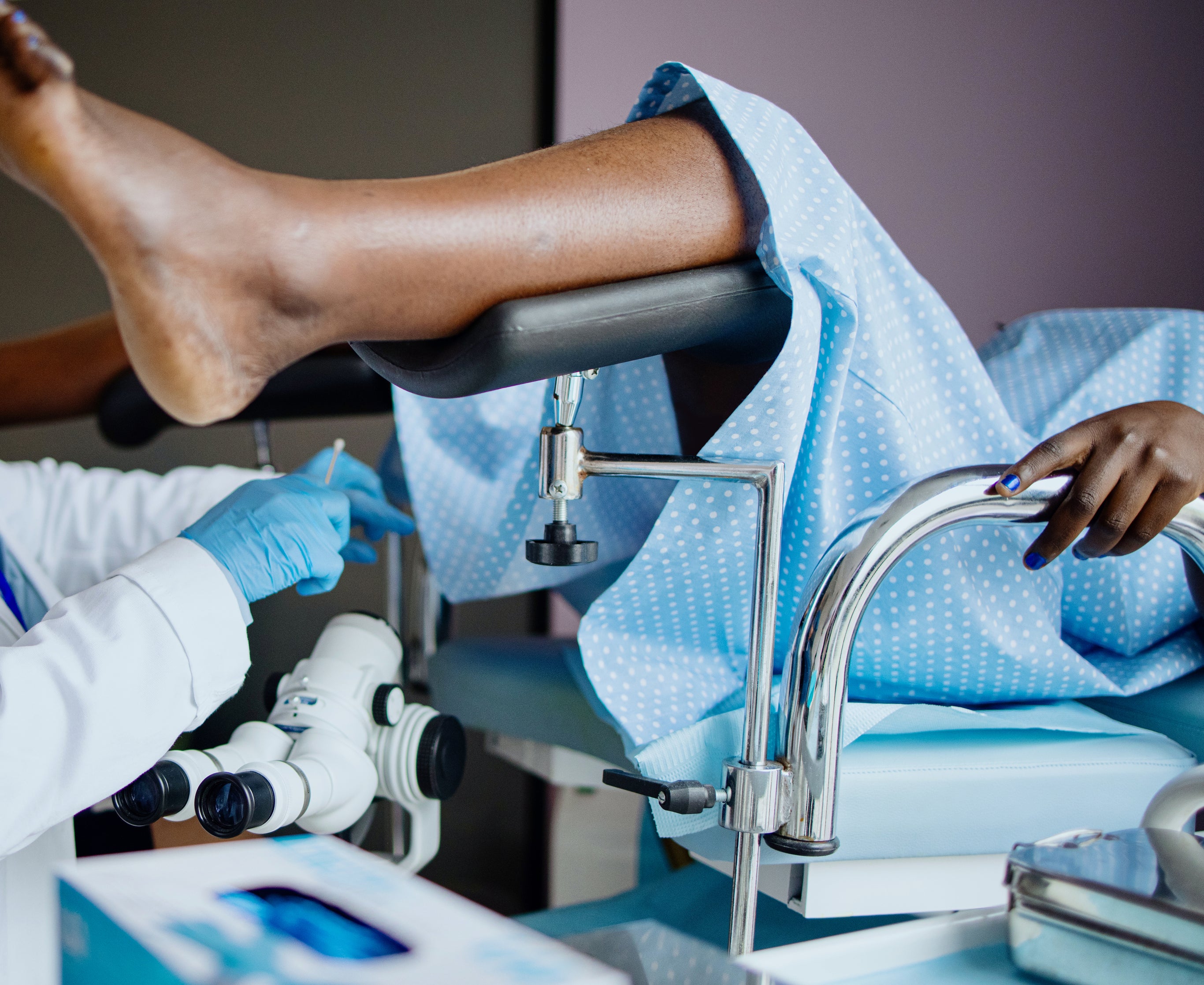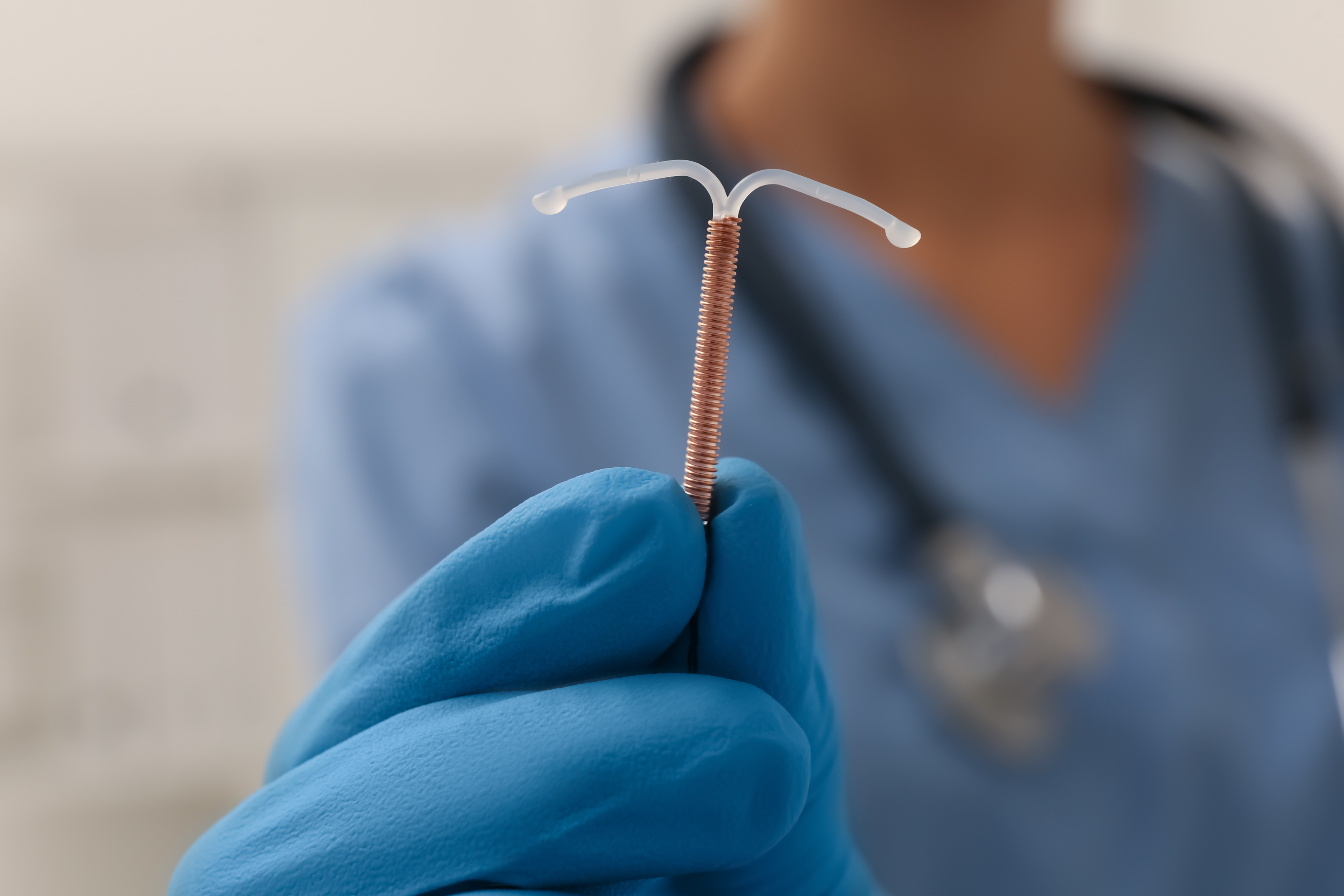Note: This post contains mention of miscarriages.
A while back, nearly 2,000 women on Reddit discussed why so many gynecological procedures are done without pain medicine and shared their healthcare experiences. After bringing the conversation to BuzzFeed, nearly 400 more women commented to further contribute with their experiences. So, in an effort to continue platforming the discrimination faced by women in healthcare, I'm sharing more of their stories:

1. "I went in for an endoscopy to rule out Barret's esophagus (pre-cancerous esophageal tissue). My dad had it previously, and it later advanced to dysplasia. During the procedure, I was fully conscious because I wasn't told to bring my CPAP with me, but they didn't believe me. Plus, my blood oxygen level was barely 90, so they were flip-flopping on whether to even do the procedure. Before it started, I told them to numb my gag reflex or it wouldn't work, as it hadn't worked previously. Instead, I was gagging for the entire three minutes, and the doctor yelled at me to breathe through my nose. I have sinus issues. Then, the doctor actually got pissed in the middle of the procedure because no Barret's was present. I had to wait until it was over to tell them that the procedure was, in fact, to rule it out. Meanwhile, my dad was knocked out for all of his."

2. "I had a colposcopy that also got caught/snagged, and the doctor basically ripped the rest of it on her way out with the instrument. It is the worst pain I've ever felt in my life. I've never had to have one again, but I don't know if I could after that. I was scheduled to donate peripheral blood stem cells to a cancer patient I matched with, and they offered me Valium for that!"
"All of these stories are some buuuuullshit. These doctors need to do better for their patients—or the healthcare system overall really."
3. "I argued with a doctor who told me that there would be no pain management for my colposcopy after I showed up for it. His reasoning was that 'it was only a 5–10-minute procedure,' and that I could have some ibuprofen(!) after. When I told him that vasectomies were a 5–10-minute procedure, too, but that I bet if he were having one, he'd want some anesthetic for his balls, he straight-up walked out on me."
4. "I've had nothing but painful experiences with OBGYNs my entire adult life. I've been disabled since I was 21 due to a bad car accident. They just can't understand why I'd need numbing when I have an intrathecal pain pump—it only helps my mid-to-lower back and leg pain—or think because I have severe pain, my pain tolerance must be high. When I was in labor with my second child, I couldn't have an epidural due to my five-level fusion and the pain pump, so they gave me Verset. It barely worked. My obstetrician was on vacation, and his fill-in kept telling me it wasn't that bad and to quit screaming and push. After 7.5 hours of pleading with her to do a C-Section, she finally said the baby was close enough to use suction. She also said, 'What do you want me to put in your chart? That you were too tired to push?' I wanted to kick her in the face and tell her to put that in her chart. After I finally delivered, she sewed me up with no anesthesia."

5. "I had a cervical biopsy with no pain meds offered, and it remains the most painful thing I've ever experienced—and I've done natural childbirth. It felt like someone was stabbing and tearing at the core of my insides (because—hey, guess what?—that's exactly what happened!). Now, I hate penetrative sex and haven't done it in years. Just the thought of anything touching my cervix is unbearable."
"I also have to heavily self-medicate prior to a Pap smear in order to get through it without a panic attack."
6. "I took the recommended extra-strength ibuprofen before going to have my IUD put in. The doctor started off by 'numbing' me with a needle. He also gave me something to 'help open my cervix,' saying it may increase my heart rate. When he finally started the procedure—HOLY SHIT. My heart was beating so fast that I thought I was going to pass out, and my legs were bouncing uncontrollably. I was yelling—can't remember what—and the doctor kept telling me to control myself. As the nurse held down my legs, he told me to cough so he could push the IUD up higher. I felt everything; it was the worst experience. I was finally numb when he cut the strings and cleaned me up afterward, whether from the numbing or complete shock, I don't know. Then, he just got up, handed me a pad, and said to take a minute before I left."

7. "My precious 90-year-old mama had a cataract surgery that was complicated and blinded her. After digging into her eye for hours, they just told her to take Tylenol. Once the anesthesia wore off, she screamed and cried in pain all night long."
8. "When I had my first baby, the doctor refused to give me pain meds, despite promising me he would beforehand. They wouldn't even call him until I was almost fully dilated. I pushed for hours, broke every blood vessel in both eyes, and gave myself a hernia. When the bastard finally showed up, he found that my baby's chin was caught on my pelvic bone and turned her. I then gave birth within moments."

9. "I naturally miscarried at nine weeks, but there was still tissue left behind. The doctor decided to do a dilation and curettage (D&C) to remove what was left. Not only did he not tell me what he was doing but he also didn't give me any painkillers, let alone a warning about the pain. He only told me to count to 30. When he was done, he just left the room. The nurse had to tell me what had just happened."
10. "My husband went to the acute care because he had been uncomfortable and had been experiencing some pressure on his lower right side for a few days. He didn’t even say the word 'pain,' and they rushed to get him pain meds. A few months later, I had terrible pain and thought it was another kidney stone. I wouldn't go to the same acute care because I know how they treat women. But the pain became so bad that my husband finally convinced me. All they did was give me IV fluids and tell me to go home and take ibuprofen. My husband actually said something to the doctor about not treating my pain, and the doctor said he was 'offended' by the 'accusation.'"

11. "When I was in my early 20s, I was sent for a colposcopy that indicated I had pre-cancerous cells. To discuss my next steps, I was scheduled for a follow-up appointment. I arrived for that appointment with my 2-year-old in tow expecting a chat. Instead, I was told that I was having a biopsy done and that it was inappropriate that I'd brought my child. During the procedure, I was in agony. At one point, the doctor said, 'Oh, one more thing, and we're done.' I then smelt burning and cried out in pain. Not only did they surprise me with the biopsy but also with—what I now know to be—a LEEP procedure. When I asked exactly what they'd done to me, I didn't get an answer. I was just told it was standard procedure. Afterward, I couldn't stop shaking, was in pain, and couldn't walk. The nurse looked at me and said that I should've been more prepared and that if I sat outside for 10 minutes, I'd be fine."
"I had to get myself and my son home in that awful state. I experienced bleeding and panicked as nothing was said about potential bleeding. When I later rang the hospital, they said, 'Oh, yes, that can happen.'
To be honest, I am in shock at this happening to so many women. It's ridiculous."
12. "When I was 17, I had to have a cystoscopy because I was (and still am) struggling with bladder pain and frequent bladder infections. My urologist told me it was a very quick procedure and 'just a pinch.' It was more painful than when I broke my ankle in two places. When the nurse removed my legs from the straps, they were dripping in sweat. More recently, I got an IUD. The gyno said it'd feel like some quick cramping. I don't know what I would've done if they hadn't given me the laughing gas, because I still almost kicked her in the head. I was just told to take ibuprofen for the pain. Four days later, I'm still cramping. Of course, my friend's husband is having a vasectomy soon, and you can bet he's getting proper pain medications and that his pain will be taken seriously."

13. "Oh, my god. I have two of these: I once had an abscess on my rib, so they cut me open without anesthesia to put a tube in. The tube disappeared inside—I know!—after a few days, so the doctor had to root around inside, again without anesthesia, to find it and pull it out with his stupid tweezers."
"The second: A couple of years ago, I had an IUD placed without anesthesia, but that was not the worst part of it. After a year or so, my side effects had worsened to the point where it had to be taken out. A gynecologist took a look and said tissue had grown around and over it. He told me to grit my teeth for 'the pinch,' and—holy shit—it felt like he was ripping out my entire womb."
14. "My mom was having multiple teeth extracted, but the meds wore off, and they just kept going. When they brought her out, she looked like she was close to death, and she’s the toughest woman I know. She just lay in my car, unable to move after they lifted her in. She was only able to tell me what happened after the two-hour drive home: They had the hygienists hold her down while they finished."

15. "I had a D&C after finding out I would miscarry. They put me under for the procedure but gave me nothing after. Instead, they told me I may experience 'light cramping.' I get bad cramps generally, but this was excruciating. I was told to take Advil, which did nothing. I ended up sleeping maybe four hours over the course of the next few days because the pain was so bad. The physical pain and sleep deprivation made the mental aspects of miscarrying so much worse."
"I wouldn't wish that on my worst enemy."
16. "Four months ago, I had a vaginal hysterectomy. I was given 72 hours' worth of pain meds (the 5 mg pills). When I called to tell them I was still in pain, they told me to take ibuprofen. My surgeon was a woman, too. When my husband went to his doctor last week about back pain, he got a week's worth of pills and was told to take it easy—no tests or anything."

17. "I had a cervical biopsy when I was 18, and the doctor was like, 'You’ll feel just a pinch.' Then I felt, well, a chunk of my cervix cut out and screamed. He shushed me, so I cried quietly before he looked up and said, 'Why are you crying? There are no nerve endings on the cervix. I know you aren’t actually feeling pain.'"
"That was literally decades ago. I had hoped things had changed for women since then. Good to hear that old asshole doctor is still the norm. Cool. Real cool."
18. "When I was in labor with my first child, I did not have an epidural! When the on-call doctor was called to my room, she told the nurse that I'd be there for a while since I was a first-time mom. The nurse called her a second time when the baby was about to come, and she was annoyed! She didn't ask any questions—just walked in and told me to push. After 20 minutes, she just cut into me. I felt and heard it all. Once my daughter was born and placed on my chest, she delivered the placenta by punching my stomach (uterus) to loosen it. Once that was out, she started stitching me up. I was shaking as my body was still recovering from labor. When I began screaming, 'What are you doing!?' She said, 'You had the epidural. No need for more pain meds.' The nurses, my husband, and I all then yelled at her that I didn't have an epidural. She just said, 'Too late now. I only have, like, three stitches left to do.'"
"Nothing like in episiotomy was no drugs! I had to sit on ice packs while in the hospital because of the pain she caused! They never did give me anything for relief! I should have sued her for malpractice! And a horrible bedside manner!"
19. "A few years ago, I went to a gynecologist for a Pap smear. During the process, I was in so much pain. I was screaming and whimpering. All the doctor said was to hold on, that it was almost done, and to just breathe. The following year, I decided to see a different gynecologist, but I was so nervous and scared. I kept insisting that they try to be gentle because I thought it would hurt, but all I felt was mild discomfort and almost no pain. Pap smears are not supposed to hurt like that!"

20. "I started bleeding when pregnant with my first and went to see my OBGYN at the hospital. She looked and said there were polyps on my cervix. She then told me to just hold the nurse's hand and pick a spot on the ceiling while she cut them out real quick."
"I honestly never thought to ask for any kind of pain meds for any procedure like this before. We’ve been so brainwashed to believe that 'it’s just a pinch' and now drive home and go make dinner.
I’m a medical professional and had to read a thread to realize I need to advocate for myself, and I don’t need to be in pain during gyno procedures."
21. "The anesthesiologist botched my epidural, and I started leaking spinal fluid immediately. The epidural numbed one side but not the other, so I could feel everything but wasn't allowed to get up (one leg was numbed). I nearly died giving birth, and my daughter was a NICU baby for the first nine days of her life. Despite being in pain from excruciating headaches, I came every day, all day to be with her. It took them four days to finally break down and test me before realizing I was right and giving me a blood block to resolve the headache."

22. "I got a LEEP procedure, and that was more painful than drug-free childbirth. I can feel my cervix descend before my period, and I can feel the penis on my cervix during sex. Still, the doctor told me I shouldn't feel anything. I had no sexual desire for months after the LEEP, and I talked to a lot of women who had the same procedure. Some said they're still like that after years, and others said they still feel pain or bleed during sex. Why are doctors so set on 'the cervix has no pain receptors?'"
23. "When I had my first baby, I was very tiny, and the kiddo was a big, bouncing boy. I got snapped at by the first nurse for making a sound. This was long before maternity pain relief was really a thing. We got gas and pethidine/demerol. Fast forward, my then-husband had his vasectomy done eight weeks after my fourth baby. During 15 hours of labor, I had gas. For the excruciating pain after, I got OTC painkillers. For the raw, cracked bleeding nipples, I was told, 'You know how it goes, they’ll toughen up after a couple of weeks (of breastfeeding).' Meanwhile, he was given Valium to take the night before, another one for that morning, and then pain relief for the duration of the five-minute procedure. He was also given another script for afterward and told to go easy for a few days."

24. "My hysteroscopy hurt so badly that they had to call extra people to hold me down on the table. I was screaming for help and ended up kicking my doctor in the face and breaking his nose. It was an accident, of course, but honestly, he deserved it. He was literally torturing me, and all he cared about was completing the procedure at any cost. I bled and was sore for nearly a month."
"Something was very, very wrong with what he did, but I could never tell you what. I cannot believe they do that procedure without sedation."
25. "I got put under to have wisdom teeth removed, but nothing when I got my IUD put in. I literally screamed when they inserted it. I've broken bones and have been in less pain."

26. "I had no idea to expect pain for my colonoscopy. I thought that because they weren't numbing anything, it must not be bad. During it, I started crying and screaming. I couldn't even keep my legs open. They ended up only doing a partial biopsy because I went hypotensive (my blood pressure dropped). It angers me to this day."
"I have also had three IUDs, and my blood pressure tanks from the pain every time. I have to be monitored."
27. "I had a procedure done a few months ago where they had to tear through my cervix to fill my uterus with fluid—something to do with fertility issues. The pain was unbearable, and I felt violated. I cried so hard and was furious they would let me go through that without any anesthesia or pain reliever."
"How is this so normal?"
28. "So, I used to get ingrown toenails. I went to a doctor who numbed them, removed the edges, and then shoved a Q-tip of silver nitrate into my nail bed to kill the toenail to prevent it from growing back in there. I was numbed for it. But after having my son and a second-degree tear, I wasn't healing properly. My gyno told me there was a section that wouldn't seal even after many stitches. He said, 'Don't worry, I'll take care of it.' Before I know it, I'm laying back, and he's prepping. He calmly asked if I'd ever heard of silver nitrate and explained that it'll seal the spot. It was the same as with my toenail—a Q-tip covered in the stuff. I was in so much pain, and I'd just pushed a giant baby out of there for more than 31 hours! I was crying and wanted to curse him out and kick him in the head! The nurse then piped up, 'Oh, I think we've got a numbing spray around here somewhere we could have used.'"

29. "I had a LEEP procedure fully awake. I remember I started shaking, and the doctor got on to me. It was a horrible experience. It frustrates me. We can get pain medicine for removals of moles, but fuck your cervix."
"That was just one of the many things they should have not have done."
30. "I had both an HSG and a saline ultrasound. I have high pain tolerance, and I was sweating profusely and extremely nauseous. I have never needed a few minutes before getting up, but I did that time. I had even taken 800 mg beforehand because I'd read to do so on the internet. My doctor never said a word about needing pain medication. I am absolutely blown away that a doctor can do that procedure hundreds of times a year—see hundreds of women crying, sweating, writhing in pain, and passing out—and yet no form of anesthesia is ever offered. It's fucking cruelty."
"They literally push a tube through your cervix. Why would they ever think this would be ok to do without pain control?"
31. "I had a cystoscopy with no pain meds, and it was so fucking traumatizing. There I was, sitting and acting like everything was okay and like it wasn't the worst pain in the world. When I went home, I had to pee, so I went into the shower to relax my body. I couldn't fucking pee. The pain was insane. I sobbed for hours. They ended up prescribing something extra to help, but in the end, that single event of trying to pee left me so traumatized. It hurt to pee for a week. The initial shock, sitting there awake while they do it, and the, 'You may feel slight discomfort after.' Yeah, after shoving a metal rod thicker than a pencil in my urethra. Meanwhile, I was trying to figure out why my bladder is so sensitive."

32. "I hadn't had any other form of birth control and got an IUD placed. I had asked my doctor before the appointment if it was okay to drive myself home, and if there were any pain meds I could get. She told me all I would need was over-the-counter stuff. I nearly passed out during the insert from the pain. Once my head stopped spinning, I very carefully got myself to my car and started to drive home. It was incredibly painful. Our roads are shit here, and every single bump I hit had me screaming in pain while trying to keep focus. I made it home and basically couldn't leave my bed for two days. It's completely ridiculous that we are given no numbing or pain meds for a procedure that puts a foreign object in the most sensitive part of our bodies. Our bodies literally fight back against it being there."
"Moral of the story, no, it's NOT okay to be told you can drive yourself home after your first IUD placement.
33. "I had an HSG done. They basically insert a tube into the vagina/cervix/uterus and inject a dye to see the shape of the uterus and if your fallopian tubes are blocked. It was the fucking worst. I was literally in agony and opted for exploratory surgery after they injected the dye for the third or fourth time. After uterine surgery, I had a balloon catheter in my uterus for two weeks. My body started having literal contractions to try to force it out. The doctor said I didn't need to be out of work."
"It was fucking hell. They told me to use ibuprofen and Tylenol at the max dose. It's insane how horrible pain care for women is."
34. "After having my third kid via C-section, they refused to give me any pain meds except two regular strength Tylenol every few hours. My baby was in the NICU for a few nights, too. So when I wanted to see or hold him, I had to grind my teeth and get there through sheer willpower. However, my husband got put on morphine for kidney stones at this same hospital."

35. "I recently had an endometrial (uterine) biopsy. The doctor told me it would hurt, but it would be over in 10 seconds. I started counting out loud, 'One Mississippi, two Mississippi, three...' then I started screaming. After, I was crying and hyperventilating. The doctor told me my reaction was normal. It was so painful that I can't really tell you how it was painful. My brain just won't go there. Years ago, I had cold cauterization done on my cervix twice. Again, no pain meds. That was bad. The endometrial biopsy was worse."
36. "I had a cervical biopsy done. I am a candidate for endometrial ablation, and my insurance company required a biopsy. I didn't know it was going to happen until 30 seconds after my ultrasound. My OBGYN requested that I take my mask off (COVID) to 'help with breathing' because it was going to hurt so much. I put my hands behind my head since I didn't know what to do with them. Now, I have what I consider to be a very high pain tolerance, but during the procedure, I used my own nails to cut into the top of my other hand. I didn’t even realize I was doing it. The nurse actually had to bandage my hand before I left."
"I now have four U-shaped scars on the top of my hand. That was six months ago, and I haven’t scheduled my ablation because that situation fucked me up in the head."
37. "Five years ago, I had my first IUD inserted. I lucked out with a physician who insisted on local anesthetic for the insertion and made me lay on the exam table for 30 minutes afterward for monitoring. That physician moved on to another state, so I had to find a new one for my replacement IUD. When I scheduled it, I specifically asked for the anesthetic, and they said they'd make sure it was prepped for me. Well, when I got there, they told me that the anesthetic was not prepared and it would 'take longer to prep and numb you than to just insert the new device.' Already strained, I buckled and allowed them to do removal and replacement without the anesthetic. It was agonizing. I complained to the office manager and asked to have my physician changed, but I was bullied out of that, too. I'm autistic, so it's incredibly hard for me to initiate care in the first place, and it's harder to stand up for myself. It sucks."

To the women sharing and to those of you reading, thanks for sticking through these stories and acknowledging the sexism in healthcare. If you've faced a similar experience or have (supportive, please) thoughts you'd like to share, let me know in the comments below.
If you're unfamiliar with the procedures mentioned and would like to learn more, see the following 16 definitions (in alphabetical order):
• Cataract Surgery — From Johns Hopkins Medicine, "Cataract surgery is the most commonly performed surgical procedure, compared with any other surgery in medicine. It is also one of the safest surgical procedures. The operation involves swapping out the cloudy natural lens of the eye, or cataract, with a new artificial lens. If you have cataracts in both eyes, the procedures for each eye are typically done separately. Cataract surgery is performed while you are awake, so you will be given a calming medication that will mildly sedate you, as well as a special numbing gel and eye drops so that you won’t feel any discomfort during the procedure."
• Cervical Biopsy — From Johns Hopkins Medicine, "A cervical biopsy is a procedure to remove tissue from the cervix to test for abnormal or precancerous conditions or cervical cancer. The cervix is the lower, narrow part of the uterus. It forms a canal that opens into the vagina."
• Colonoscopy — From Johns Hopkins Medicine, "A colonoscopy is a procedure that lets your health care provider check the inside of your entire colon (large intestine). The procedure is done using a long, flexible tube called a colonoscope. The tube has a light and a tiny camera on one end. It is put in your rectum and moved into your colon."
• Colposcopy — From Johns Hopkins Medicine, "A Colposcopy [is a procedure that lets your health care provider] view the opening to the uterus, called the cervix, and the vagina. It uses an instrument with a magnifying lens and a light called a colposcope. It magnifies the image many times. The healthcare provider sees the tissues on the cervix and vaginal walls more clearly."
• Cystoscopy — From Johns Hopkins Medicine, "Cystoscopy [for women] is a procedure that lets the healthcare provider view the urinary tract, particularly the bladder, the urethra, and the openings to the ureters. Cystoscopy can help find problems with the urinary tract. This may include early signs of cancer, infection, narrowing, blockage, or bleeding. To do this procedure, a long, flexible, lighted tube, called a cystoscope, is put into the urethra and moved up into the bladder."
• Dilation and Curettage (D&C) — From Johns Hopkins Medicine, "A dilation and curettage procedure, also called a D&C, is a surgical procedure in which the cervix (the lower, narrow part of the uterus) is dilated (expanded) so that the uterine lining (endometrium) can be scraped with a curette (spoon-shaped instrument) to remove abnormal tissues."
• Endoscopy — From Johns Hopkins Medicine, "An upper GI endoscopy or EGD (esophagogastroduodenoscopy) is a procedure to diagnose and treat problems in your upper GI (gastrointestinal) tract. The upper GI tract includes your food pipe (esophagus), stomach, and the first part of your small intestine (the duodenum). This procedure is done using a long, flexible tube called an endoscope. The tube has a tiny light and video camera on one end. The tube is put into your mouth and throat. Then it is slowly pushed through your esophagus and stomach, and into your duodenum. Video images from the tube are seen on a monitor. Small tools may also be inserted into the endoscope."
• Endometrial Biopsy — From Johns Hopkins Medicine, "Your healthcare provider can do an endometrial biopsy to take a small tissue sample from the lining of the uterus (endometrium) for study. Your healthcare provider will insert an instrument called a speculum into your vagina to spread the walls of the vagina apart to view the cervix. Your provider will insert a thin tube, called a catheter, through the cervical opening into the uterus. The catheter has a smaller tube inside it. The healthcare provider will withdraw the inner tube creating suction at the end of the catheter, then gently rotate and move the tip of the catheter in and out to collect small pieces of endometrial tissue."
• Hysterosalpingography (HSG) — From UCSF Health, "Hysterosalpingography is a special x-ray using dye to look at the womb (uterus) and fallopian tubes. You will lie on a table beneath an x-ray machine. You will place your feet in stirrups. A tool called a speculum is placed into the vagina. After the cervix is cleaned, the health care provider places a thin tube (catheter) through the cervix. Dye, called contrast, flows through this tube, filling the womb and fallopian tubes."
• Hysteroscopy — From Johns Hopkins Medicine, "Hysteroscopy is the exam of the inside of the cervix and uterus using a thin, lighted, flexible tube called a hysteroscope. Your provider will insert the hysteroscope into the vagina, through the cervix, and into the uterus. Your provider will inject a liquid or gas through the hysteroscope to expand the uterus for a better view. Your provider will examine the wall of the uterus for problems."
• IUD (Intrauterine Device) — From Planned Parenthood, "An IUD is a tiny device that's put into your uterus to prevent pregnancy. To put the IUD in, the nurse or doctor will put a speculum into your vagina and then use a special inserter to put the IUD in through the opening of your cervix and into your uterus."
• LEEP (Loop Electrosurgical Excision Procedure) — From Johns Hopkins Medicine, "Loop electrosurgical excision procedure (LEEP) uses a wire loop heated by electric current to remove cells and tissue in a woman’s lower genital tract. It is used as part of the diagnosis and treatment for abnormal or cancerous conditions. With LEEP, an electric current passes through the fine wire loop to cut away a thin layer of abnormal tissue. This tissue will be sent to the lab for testing. LEEP can also remove abnormal cells to allow healthy tissue to grow."
• Pap smear – From Planned Parenthood, "Pap tests, sometimes called Pap smears, are very important tests for finding abnormal cells on your cervix that could lead to cervical cancer. Pap tests find cell changes caused by HPV, but they don't detect HPV itself. Pap tests may be part of your regular check-up, pelvic exam, or well-woman exam. During a Pap test, your doctor or nurse puts a metal or plastic speculum into your vagina. The speculum opens up to separate the walls of your vagina so that they can get to your cervix. Then they use a small sampler — a tiny spatula or brush — to gently collect cells from your cervix. The cells are sent to a lab to be tested."
• Saline Infusion Sonohysterography (SIS or SHG) – From Inside Radiology, "SIS uses a saline (salt solution) inserted into the uterus that allows the lining of the uterus to be clearly seen on an ultrasound scan. A speculum is inserted into the vagina. A soft catheter is inserted through the speculum and into the uterus through the cervix. The speculum is then removed while the catheter still remains, and a transvaginal ultrasound transducer is inserted into the vagina. A small amount of saline is inserted through the catheter into the uterine cavity. The transducer is then gently moved around while images of the inside of the uterus are taken."
• Vaginal Hysterectomy — From the UK's National Health Service, "During a vaginal hysterectomy, the womb and cervix are removed through an incision that's made in the top of the vagina. After the womb and cervix have been removed, the incision will be sewn up. The operation usually takes about an hour to complete. A vaginal hysterectomy can either be carried out using: 1) General anesthetic – where you'll be unconscious during the procedure. 2) Local anesthetic – where you'll be awake, but the area will be numb so you will not feel any pain. 3) Spinal anesthetic – where you'll be numb from the waist down. A vaginal hysterectomy is usually preferred over an abdominal hysterectomy as it's less invasive and involves a shorter stay in the hospital. The recovery time also tends to be quicker."
• Vulvar Biopsy — From Emory University School of Medicine, "A vulvar/vaginal biopsy takes one or more samples of tissue from the vulva or vagina. The vulva is the outer part of the female genitals, including the labia, which are often called the lips, and the clitoris. The vagina is the opening that leads to the cervix, which is the entrance to the uterus."
